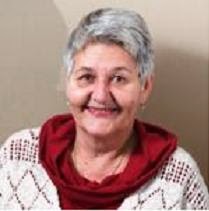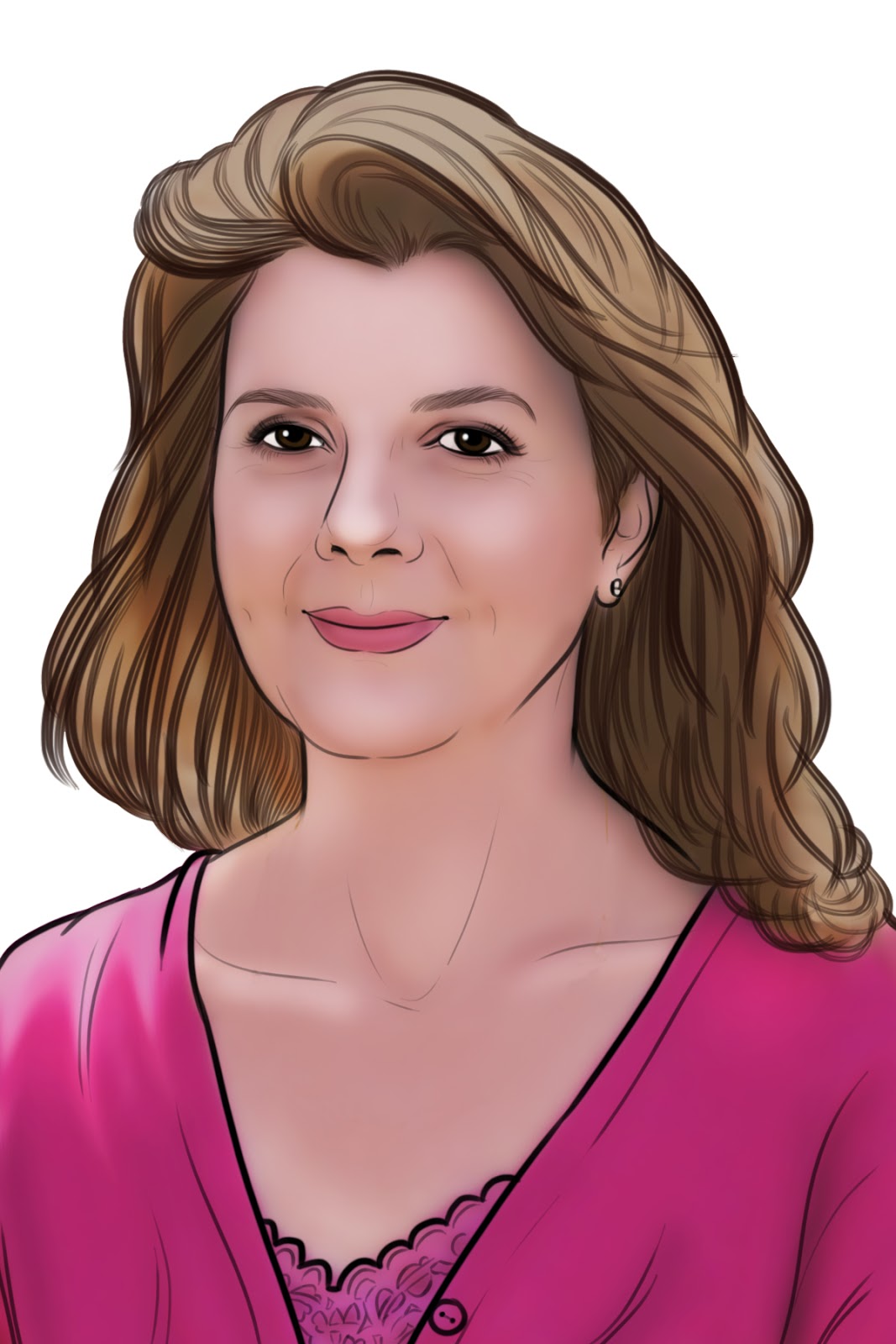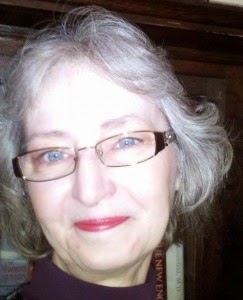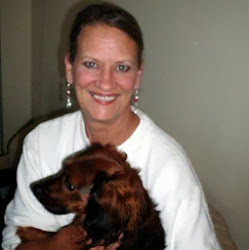Just Imagine if This Were You
You are 33 years old, healthy, and in the prime of life. You have a great job in an advertising agency as a copywriter. One day at work you have a massive stroke and nothing is ever the same again. That's what happened to Maureen Twomey. It's a miracle she survived her stroke and recovered enough to write Before, Afdre, and After (My Stroke...oh what fun). Maureen's story is one of courage, the support of friends and family, and dedicated doctors and therapists. It's a must-read for anyone who knows someone or is caring for someone who is recovering from a stroke.
 |
| Image Courtesy of Pixabay, edited on FotoJet.com |
Maureen's Miracle Story - Before
The book opens as Maureen shows us her life before the stroke. She was born and grew up in California, graduated from UCLA as I did (but much later) and got some great jobs in advertising. At the time of her stroke, she was working in the Bay Area. She had oodles of friends and an active social life. She was taking a class in improvision, which she loved. She was known for her sense of humor. The stroke could not kill that in her.
Maureen was at work the day she had her stroke, June 6, 2000. The first symptoms manifested while she had taken time away for an appointment with a dermatologist who saw her after 2 PM. She started to feel funny. Her right eye was flashing, but a few seconds later she felt better and walked back to work. It was there her coworker Amy found her crying in the hallway outside her office because she is anxious about her symptoms. The flashing lights in her eye are back and there is some tingling in one side of her body. She has a slight headache. But when she talks to her doctor and tells him she's not in pain, he just said to call back if the symptoms get worse. She starts to work again. It is now 3 PM.
At 4:20 she is still at work and her symptoms get worse and more resemble classic stroke symptoms. She had decided to skip her improvisation class that night and was typing an email to explain her absence. Suddenly the words made no sense to her. Then she fell on the floor. Amy heard her fall and start crying. Symptoms are full-blown. Amy calls the doctor back to get an appointment for Maureen and the doctor told her to call 911.
At the Hospital - Afdre
When the paramedics arrive to interview Maureen it is 4:50. Maureen can express herself with some difficulty. Although the paramedics take her to the emergency room at California Pacific Hospital, they don't think this is an emergency that merits lights and the siren. It takes 20 minutes to get to the emergency room. By this time three hours have elapsed since the onset of symptoms. At 6:20 they do a CAT scan. At 7:30 they do a spinal tap. They release her to spend the night with her father and his wife Judy.
The next morning, June 7, as Maureen tried to eat breakfast, she started feeling strange. Then she couldn't remember anything. Her dad was so alarmed he carried her to the car and drove her straight back to the emergency room. By then Maureen could neither walk nor talk. She finally was diagnosed with a massive stroke, but it was too late to give her the clot-busting drug that can prevent permanent damage. It has to be given in the first hours after onset of symptoms.
Stroke Survivor Memoirs
I plan to soon read some of these stories by and about others who have survived strokes. Some contain helpful information on recognizing early symptoms months before the onset of a stroke, as well as advice for stroke prevention. It amazes me how many of these stories were written by people only 33 -- like Maureen.
Tell Me Everything You Don't Remember: The Stroke That Changed My LifeBefore, Afdre, and After (My stroke . . . oh what fun)My Stroke of Insight: A Brain Scientist's Personal JourneyConquering Stroke: How I Fought My Way Back and How You Can Too
Maureen's Miracle Story: After
The rest of the book was written after Maureen recovered enough to use words again. She had to completely rebuild her life and learn again everything she'd ever learned -- how to talk, the alphabet, words, how to read, how to write. Before she recovered any of these abilities, her father sent our regular updates on her progress to her circle of friends and extended family. These emails are part of the book, as are illustrations of some of Maureen's first attempts to write during her recovery.
Although Maureen's recovery was much longer than she expected, she writes with a humorous and optimistic voice that won't accept defeat. As a result of that spirit and a lot of hard work, she accomplished much more than the doctors expected her to. She now is able to live alone again, drive, and write. You can follow Maureen Twomey on Twitter.
Although Maureen's recovery was much longer than she expected, she writes with a humorous and optimistic voice that won't accept defeat. As a result of that spirit and a lot of hard work, she accomplished much more than the doctors expected her to. She now is able to live alone again, drive, and write. You can follow Maureen Twomey on Twitter.
My Review of Before, Afdre, and After
This book is different than most I read because the author is working under an extreme handicap compared to most. Although her stroke happened 15 years before she was able to write and publish her book, she has not completely recovered the all verbal and motor skills she once had. Her typing speed isn't what it used to be. She still can't always retrieve the words she wants to use from her memory bank. (If you are reading this, Maureen, please feel free to comment and correct anything that may have changed in the past two years.)
I read the book to see what a stroke looks like to the one who has experienced it. Maureen is good at explaining what it was like for her, day by day. Although much of the book is in her voice, some of it consists of copies of emails sent by her father, coworkers, and friends. She also includes a copy of her resume and a list of resources.
There are a number of photos and scans of some of the work Maureen did as part of her rehabilitation. She even has scans of some pages she completed from Explode the Code, a popular phonics workbook I used to sell at homeschool conventions. I was thinking how hard it must have been for her to start over learning to read and write with disadvantages healthy children learning the same things don't have. I can't even imagine how difficult that would be.
I'm glad I read the book and I recommend it to others who want a day-by-day look at what life is like for someone recovering from a massive stroke. Maureen tells her story in a matter-a-fact way with a touch of humor. Since her stroke, she has moved back into an apartment, learned to drive again, participated in a walk for the Heart and Stroke group of the American Heart Association, and finished her book. She still can't run as she used to.
The only thing I didn't like was that I had chosen to buy the ebook so I could start reading right away. On my Kindle Paperwhite the illustrations, especially the scans of Maureen's written work, were too small to see clearly. I suggest you get the paper copy of the book if you don't want to miss anything. In this case, the illustrations are an important part of the book. I am finally able to see them on the Kindle App for my iMac.
I hope you will show support for Maureen by buying her book and leaving her a review on Amazon so that her book may start showing on the first page of an Amazon search for stroke survivor memoirs. That way more people may be able to find it. Also, why not follow her on Twitter?
 |
| Image Courtesy of Pixabay, edited on FotoJet.com |
Have you ever had a stroke, known someone who survived one, or cared for someone recovering from a stroke? Is your experience similar to Maureen's?
***
Note: The author may receive a commission from purchases made using links found in this article. “As an Amazon Associate, Ebay (EPN) and/or Esty (Awin) Affiliate, I (we) earn from qualifying purchases.”





























Sounds like an extremely interesting book, Barbara. My mother-in-law had a stroke years ago and I know a little bit (from visits) of what she went through. Her speech was mostly affected and she had difficulty finding the correct words to communicate, but did recover fairly well otherwise. It sounds like Maureen had a tremendous amount to overcome. It's too bad her symptoms weren't recognized for what they were sooner.
ReplyDeleteI agree. As I read the timeline of her symptoms I kept silently saying to those who witnessed them, Call 911 NOW!" I can't imagine why the dermatologist didn't call 911 when one of the symptoms happened in front of him. I questioned why her doctor heard her symptoms and didn't send her to the ER right away. In 2000 maybe the general population, especially Maureen's young co-workers, weren't as aware of stroke symptoms as we are today, but surely the doctors should have suggested a trip to the ER.
DeleteHow awful that she was pretty much begging for help and was dismissed by every medical person she came in contact with. You made me realize that I obviously don't know the first signs of a stroke too. Sounds like a must read book to me!
ReplyDeleteSounds like a compelling book with a message for all of us
ReplyDeleteWe should all be very aware of stroke symptoms and be willing to call 911 if we see someone who appears to have stroke symptoms. The book discusses those symptoms.
DeleteExcellent book review on a subject we all should know more about. As I was reading about Maureen, I was frustrated that the medical professionals didn't realize she was having a stroke until it was too late to use the drugs that would have been available. What a courageous woman to go through recovery with a sense of humor and positive outlook. Thanks for sharing this, Barbara.
ReplyDeleteI experienced that same frustration.
DeleteBarbara, I will be reading this for sure. I have known many people who have suffered strokes, but would like to know more. Hopefully, it will be knowledge I won't need, but it's better to have it than to regret not knowing. Thank you for tackling a hard topic.
ReplyDeleteThat's one reason I read it. My husband had a TIA about two years ago. I called the paramedics right away. They tested him and told me he should go to the ER. They wanted to take him, but admitted it was a precaution and I could probably take him safely if I promised to really do it and leave soon. I promised and did leave with him in five minutes. They took him back immediately and gave him all the tests. They saw no reason to keep him then because his episode was over, but you'd better believe I keep careful watch now. In case of a full stroke, every minute counts in getting the right treatment. My mom had a stroke after her open heart surgery when she was about 80. I was with her in the ICU when she started vomiting like a fountain. I called the nurse immediately. When she came she shooed me out to the waiting room. I was some time before the doctor came in to report she had had a stroke. They had given her the blood thinner right away and she suffered no permanent damage. I didn't recognize it as a stroke, but knew it should not be happening. Family on the scene is a first line of defense. They care the most.
DeleteThat's crazy how her symptoms were dismissed so many times - probably because she was younger and a woman. It had to be so incredibly frustrating and scary for her to go through this. The book could be a life saver for people.
ReplyDeleteI just started reading a book by another stroke survivor who was about the same age. Her symptoms were also dismissed and misdiagnosed at first. One doctor said she had just had a migraine. The other said she probably had MS. Her stroke was not a severe as Maureen's she could at least write to communicate, but otherwise coming to grips with what had happened to her was just as difficult as for Maureen. She spends most of her book educating people on understanding medical terms and types of strokes. She also spends a lot of pages explaining to friends, family, and caregivers how to best help stroke patients get through their recovery periods.
DeleteStrokes are such a scary and over-looked thing. This book, and Maureen's recovery/response, sound inspiring. Thank you for the book review. My migraine once presented as a stroke. I went to the ER. At the desk, I was questioned why the social security number i was giving verbally, did not match the one in the file. Well duh, I think I'm having a stroke... that may be it. Then I waited in the waiting room to be seen. I do think severe migraines make strokes harder to diagnose accurately..... but I also think women tend to be dismissed when having symptoms of serious health problems. Thank you for this thought-provoking review.
ReplyDeleteSo young but I do know someone who had a stroke fairly young. Sounds like an interesting read.
ReplyDelete